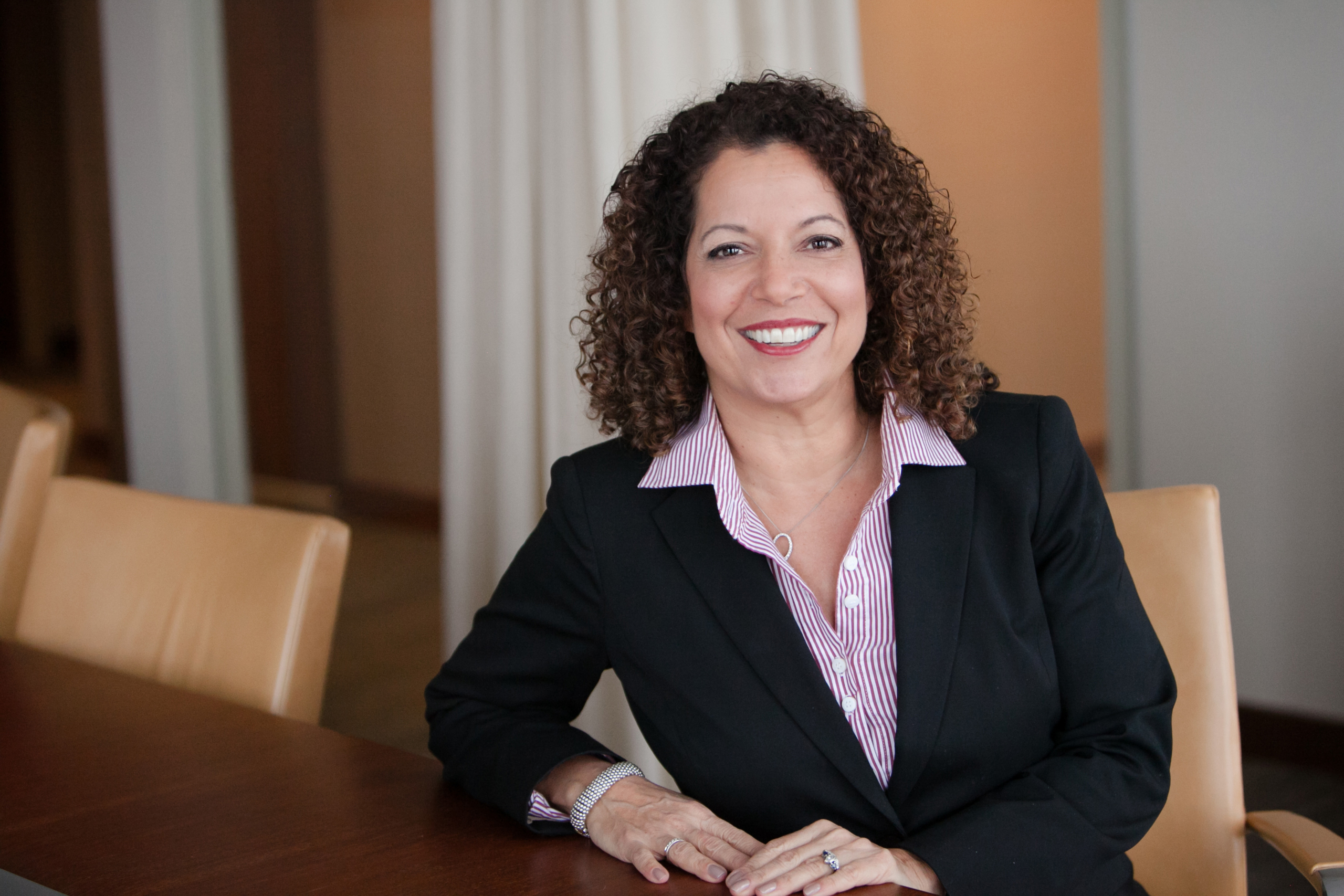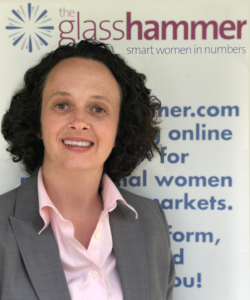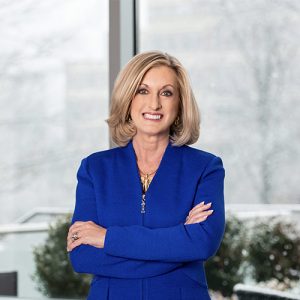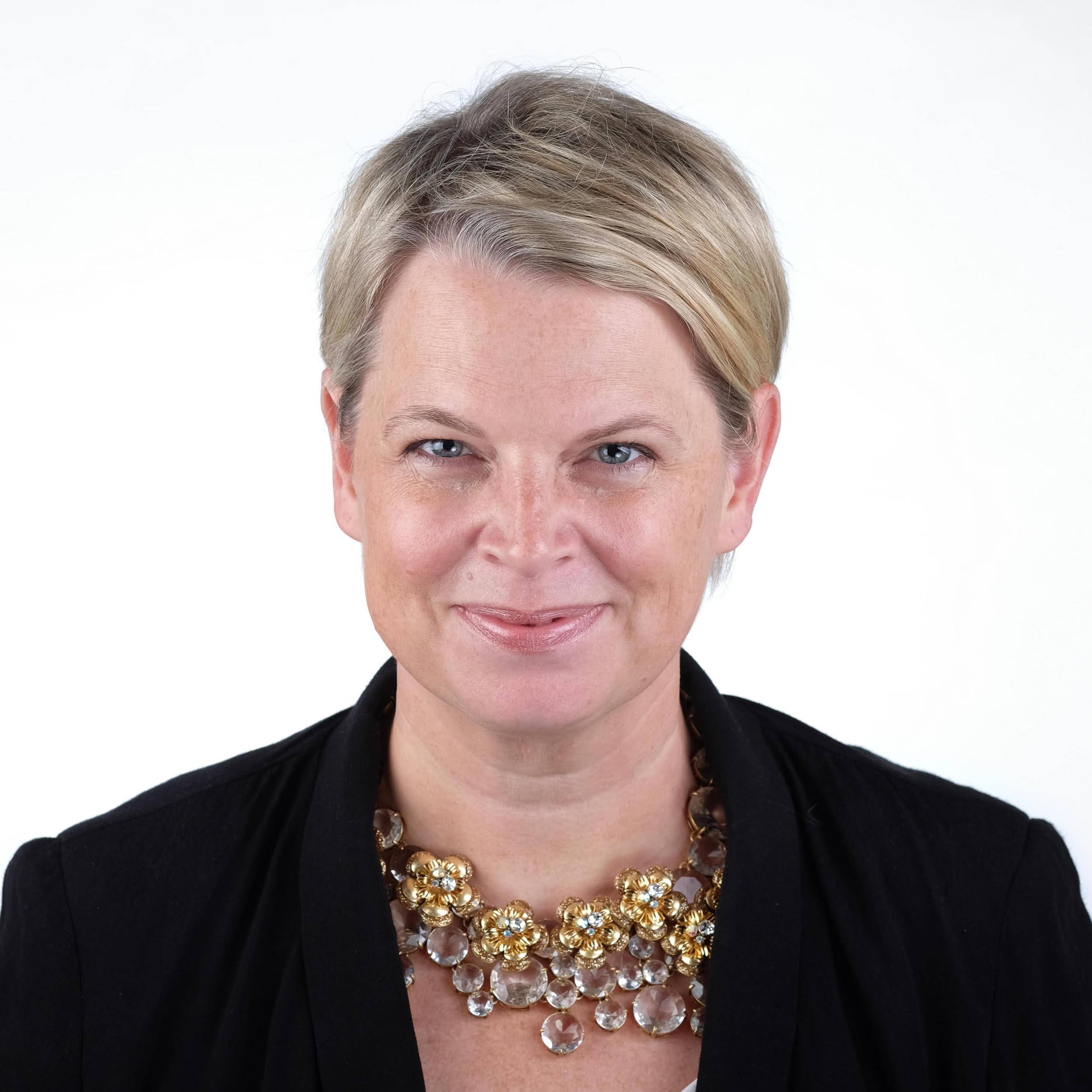 by Lisa Featherngill, Head of Legacy and Wealth Planning, Abbot Downing
by Lisa Featherngill, Head of Legacy and Wealth Planning, Abbot Downing
Empowerment can come in many forms.
According to Webster’s, the definition of empowerment is “granting of power, right or authority to perform various acts and duties or the state of having the power, right or authority to do something.”
So, empowerment can come from inside or it can be given to someone. In my experience, being empowered as a young girl helped me become stronger and more confident as a woman. I want to share my story with you to hopefully inspire you to empower others.
I was fortunate that my hard working, successful single mother never discouraged me from ‘traditional’ male subjects. She never graduated from high school and yet she was working at the White House and traveling with the Press Corps and Presidents Johnson and Nixon. She was a role model for being strong and confident and always told me that I could do whatever I want in life.
Growing up I was surrounded by women like Helen Thomas, the iconic correspondent from Associated Press, Gloria Steinem who had just started Ms. Magazine and was a leader in the women’s liberation movement. These women were powerful, visible and impactful. They were trail blazers who did not hesitate to follow their passion for change despite considerable obstacles. I practiced what I observed. As a teenager and young adult, I was told I was “rebel without a pause.” I was always eager to channel my energy into exploring new opportunities.
In college, I thought that I wanted to be a photo-journalist. Then my camera was stolen on a trip to Key West before the fall semester started, so I decided to try accounting. To my surprise, I loved it. I took the CPA exam as soon as I finished finals and a week later went to work at Arthur Andersen. Although 50% of the new hires were women, there weren’t many women in the senior ranks. It was a tough environment and even tougher as a woman. It was at Arthur Andersen that I found my first supporter in my professional career, a man named David, who was a partner. He told me that he expected brilliance from me. Through hard work, constructive feedback and opportunities I was promoted and quickly learned that with more visibility, there were new and higher barriers to overcome. David took a chance sponsoring me, a term that was not used that time. He provided me space to grow, to build my confidence and recognize my contributions to the firm. Although he was incredibly tough, I knew he had my back.
Through my experience with David and Arthur Andersen, I knew I had added responsibility to pay it forward to create opportunities and a more inclusive environment for women in the workplace. One small example occurred during a cold winter one year, back when women didn’t wear pants to work. I challenged the office Managing Partner and said “I’m going to wear pants to work tomorrow” and he replied, “fine, I’m going to wear a skirt.” That day my simple act of defiance helped drive change that was another stepping stone to improving the environment for women in our office.
I love to find great talent and the planning field has an unusually high percentage of women. I have been fortunate to help other women find opportunities that enable them to grow professionally and personally. Support can be as simple as encouragement, inviting someone to a conversation, or creating room from them to innovate. One of the members of my team was dedicated to client service, but I saw so much potential in her to lead others and share her voice more prominently. I coached her for a few years and provided her more exposure when I expanded her role from a regional to national level. She has also coached me to understand different perspectives. I have seen her flourish through the relationships she has built with others and helped her grow in confidence so she can someday step into my shoes.
Being available to talk to women in the finance field has been very rewarding. Listening to their experiences and needs has allowed me to adapt my management style. I have made sure that my teams have flexible work schedules and resources available to them so they can do their best work while still managing their personal lives. Ironically, working from home during the COVID-19 virus has shown other leaders that we can be effective with flexible work schedules and working from home.
We have a unique opportunity and responsibility to empower other women. According to a recent presentation at the Abbot Downing Women’s Summit, women have not been able to break a glass ceiling to get past 20% of women in leadership positions. Currently, 60% of undergraduate and graduate degrees are awarded to women. So, there are women entering the workforce. However, the conundrum to me, is that they still aren’t getting into the leadership positions at the same rate as men. It is amazing to me that 48 years after the first edition of Ms. Magazine and seven years after the book “Lean In” was published, women aren’t in more leadership roles. To quote Ruth Bader Ginsburg, “Women belong in all places where decisions are being made. It shouldn’t be that women are the exception.”
If this is going to change, both the women in the 20% and men in leadership roles need to empower the 80% of women beneath the glass ceiling. Women and men need to recognize and support the women who show the desire and talent for leadership. I am fortunate to currently report to a man who provides this support for me and other women in the company.
Empowerment can happen at work or it can happen at home. As Gloria Steinem said, “The best way for us to cultivate fearlessness in our daughters and other young women is by example. If they see their mothers and other women in their lives going forward, despite fear, they’ll know it’s possible.”
I encourage us all to invest time into the change needed. We are all in a position of influence.
I’ve been fortunate to have had a front row seat at major inflection points in history, beginning with my time at the Reagan Defense Department during the final days of the Cold War.
I had actually transferred to the White House just a few months prior to Gorbachev’s 1987 visit. Later, I joined Intel Corporation and had a chance to work on a part of the Intel Inside® program, which changed consumer tech purchasing habits forever, leading to Intel’s dominant semiconductor market share in the 90s. My husband and I enjoyed the dot-com boom and thankfully survived the bust.
In 2004-2005, working closely with the auto industry, I hosted a hallmark Nagoya meeting between Toyota patriarch Dr. Shoichiro Toyoda and General Motors CEO Rick Wagoner. Our building was surrounded by hundreds of Japanese paparazzi as the companies battled it out for top global sales position with the Japanese automaker maintaining the edge. And in 2009, as obesity was emerging as a global health risk, I worked with 16 food and beverage company CEOs to help reduce 6.4T calories from 35% of the food sold in the United States.
As an observer, a participant and a leader during times of historic change, I learned to plan for multiple scenarios when redesigning and building high-impact, sustainable operations. Here’s what I know about managing through an inflection point:
• Always plan for disaster. Anticipate that at some stage, something will fail and determine whether or not the systems you have built will survive significant fallout from political or economic events, regulation or new competition. The question I ask daily is, “If we have the worst market crash tomorrow will we be able to sustain our core research infrastructure?”
• Hire smart people and help them move quickly by moving boulders out of their way.
• Look for opportunities to partner with other organizations to decrease costs by supplementing existing activities, creating new channels or outsourcing lower-yielding but well-loved legacy initiatives.
• Run as fast as you can. Do not slow down. You only have a short window of time in which to build and you need to move quickly.
• Preserve cash. Organizations who maintain lean operating systems and build reserves have the highest probability of riding out the worst market.
In 2018, when I joined FARE [Food Allergy Research and Education] as its CEO, rather than experience an inflection point, for the first time I may have created one for the organization. With a remit to restructure the organization and facilitate high-net-worth donor and industry investment to drive therapies and diagnostics into the marketplace to meet the needs of an underserved patient community, in 12 months we received $75M in commitments and put into place a cash conservation plan.
Now amidst the COVID-19 pandemic and even as some states and businesses prepare to open, at another inflection point. You simply never know when the inflection points will arise, yet here we are again as organizations try to pause to help others, while doing their best to stay relevant and generate revenue to support the needs of populations they serve.
Today, my staff knows that all ideas are on the table as we meet 2020 objectives in unanticipated ways. We are culling through my archives of the most innovative concepts executed by former teams during opportunity and crisis as we look for that kernel of a concept that can be reimagined and extended. Interestingly, we are finding that ideas gleaned from science fiction, spy novels and murder mysteries sometimes lead to the next new idea. We take thoughts and play them out in a 100 percent digital engagement or a combination concept like 10 and under in-person salons connected via Zoom across the country. And we find our humor and celebrate wins daily.
As Andy Grove says: “Success breeds complacency. Complacency breeds failure. Only the paranoid survive.” While we are in the midst of a pandemic, and closures and work stoppages may seem disastrous, keep running and do your best to enjoy your front row seat. It will help for next time.
Lisa Gable is CEO of FARE, Food Allergy Research Education, the largest private funder of food allergy research advocating on behalf of the 32 million Americans living with potentially life-threatening food allergies. Lisa’s passion, expertise, and fearless workstyle have propelled her to achieve the titles of CEO, US Ambassador, UN Delegate, Chairman of the Board, and advisor to Presidents, Governors, and CEOs of Fortune 500 and CPG Companies worldwide.
As you go through your career, it’s important not to be overly focused or worried about the impact of a single mistake or decision, says Tami Gaythwaite.
“That’s because it’s not the actual mistake or decision that’s the impactful moment; it’s what you do after,” she says, adding that the best way to deal with it is to ask yourself if the issue will be important in the next year or even five. “That type of consideration can put any one action into perspective and help you keep moving forward.”
Learning by Doing Propelled Her Career
Like many aspiring professionals, Gaythwaite started at Kelly, the temporary services provider, putting her fantastic typing skills to work at a wide variety of companies. It was an experience that gave her valuable skills, including being able to just walk into a company, assess their needs and get to work.
“I don’t think as many people do temp jobs today, but the experience is invaluable and gave me a good foundation into the type of jobs I wanted, as well as feeling comfortable with walking into the unknown,” she says.
A full-time job at R.J. Reynolds followed, where she worked as a production assistant, helping organize sports promotions with NASCAR. Due to staff changes and turnover, she began to fill in various roles such as writing scripts and learning to edit and produce videos until soon she was running the video department. When the sponsorships came to an end, she took her skills to the freelance world, where she worked as an editor, animator and producer, where she realized that true value would come from choosing an area in which to focus.
As a way to ensure longevity, Gaythwaite decided to focus on the client side and moved to business management and sales with Centerline Digital, where she has been for the past 15 years. Her work expanded to solving client issues in project management and she eventually moved into the COO role, where she oversees the overall health of the business.
“My greatest achievement has been being part of the company’s growth, including finding clients and growing into a role where I can support and work side by side with my fellow team members, overseeing their professional growth,” Gaythwaite says.
Centerline Digital’s core offerings meld storytelling with marketing data that allows the company to conduct sophisticated trend forecasting. “It’s fascinating to see how those will merge as we make sure to continue to focus on the human element and keep the end customer in mind.”
Finding Your Own Path
Gaythwaite says she often works with women who have a couple of years under their belt and worry about the common barriers that women face in the work world, which can be destructive. “Don’t fear the barriers,” she says. “Although you are bound to meet them, you need to learn to push past them, which can be accomplished by aligning yourself with other women who can help you grow.”
In addition, she believes that her peers need to band together and support one another as well, as they are all currently juggling multiple needs: parents, kids and their next career step. “Understanding that we’re all going through the same thing, and are all looking at our past success, yet unsure what the next steps will be, we need to give ourselves and others some leeway.”
She is proud that the entire executive team at her firm is women, many who, like her, have been there a long time, growing up through having families and career success. “We can help nurture the other women who join our team,” she says.
A single mom by choice, Gaythwaite says that life never turns out exactly how you expect, but it can be even more gratifying. “Understand that you will likely be facing multiple speed bumps along the way, and that it won’t be exactly what you envisioned. But keep moving forward and own your own specific path. While it will look different for each person, focus on your own life and what works for you, and that’s how you will define and find success.”
The Glass Hammer
Executive coaching, leadership development coaching and career navigation coaching for women looking to develop, advance and lead in top roles.



